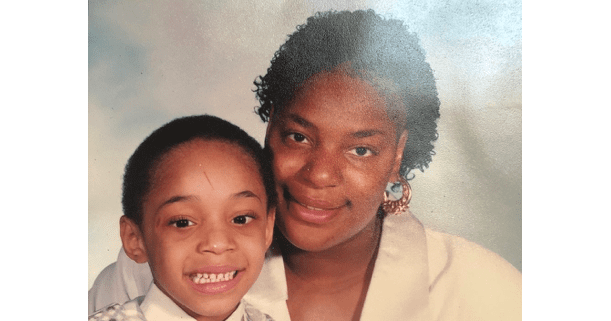A Mother’s Battle to Save Her Son
From the age of eight, Tyquine Lee was deemed so mentally disabled that he received state assistance to help his mom, Takeisha Brown, afford his care. Before he was 10 years old, he was hospitalized on four separate occasions for reasons related to his mental illness.

At 18 years old, Tyquine was imprisoned. Takeisha resolved to stay in contact with her son throughout his incarceration and to fight for him as best she could.
Takeisha could not then have imagined the nightmare that lay ahead of her, her son, and their family. Over the next few years, Tyquine would descend into a psychotic state so severe he could barely communicate. He would be warehoused in one of the most notoriously repressive prisons in the United States. Takeisha would feel utterly powerless against the state prison system. She was David facing off against Goliath, except instead of a slingshot, her weapon was a mother’s love for her child.
Almost half of all Americans have had a family member incarcerated. One in eight of these are parents who have dealt with the incarceration of a child. The impact of incarceration on family members is the untold story of this country’s addiction to imprisonment. Family members bear much of the financial burden of their loved one’s entanglement in the criminal justice system, often paying excessive court fines and fees, posting bail, hiring lawyers, paying exorbitant rates for phone calls, sending money so their loved one can buy basic necessities in prison, and traveling long distances for prison visits. The personal and emotional toll can be even more taxing, as family members may be their loved one’s only connection to the outside world, yet have no outlet for the vicarious trauma they experience hearing about their child, sibling, parent or partner’s mistreatment. The combination of anxiety over a loved one’s wellbeing and utter helplessness to do anything about it is often devastating.
When Tyquine first went to prison, Takeisha and Tyquine spoke nearly every day. In this way, Takeisha was able to stay informed about her son’s life in prison and maintain their connection. That all changed when Tyquine was transferred to Red Onion State Prison, a supermax prison in the mountains of western Virginia. Takeisha learned that Tyquine was in solitary confinement, an extreme form of incarceration that human rights advocates view as torture. For mentally ill prisoners like Tyquine, placement in solitary confinement has been described as “the mental equivalent of putting an asthmatic in a place with little air to breathe.”
Takeisha, her daughter, and her sister drove 12 hours each way to see Tyquine at Red Onion. Unlike when Tyquine was in general population, they could only visit him in a visitation booth through a plexiglass window. That restriction meant that Takeisha could not hug her son, hold his hand, or share a meal. Despite these limitations, Takeisha made the trip as often as she could. She observed a rapid and disturbing decline in her son. She could see his ribs poking through his skin, and he was unwashed. She saw dirt and grime on his teeth. On one occasion, he barked like a dog. During phone calls with Tyquine, he was nonsensical, often speaking in long strings of numbers and unable to recognize her voice.
At one point, Red Onion staff imposed a further penalty on Tyquine: They took away his family visits for six months. This cruel punishment further compounded Tyquine’s total isolation.
Takeisha advocated for her son the best she could. She called the prison to relay her concerns about Tyquine’s obvious decompensation. They told her that Tyquine had to complete a workbook-based program called the “Step-Down Program” in order to leave solitary confinement. Takeisha explained that in his current state he could not do the reading, writing, and critical thinking necessary to finish the program. Yet no accommodations for his mental illness were made. Mental health staff who evaluated Tyquine observed his clear psychosis, but did nothing on the pretext that he might be exaggerating his symptoms. Takeisha, however, knew that Tyquine’s illness was not an act. Altogether, Tyquine spent more than 600 days in solitary confinement before finally being transferred to a mental health facility for treatment.
Determined to do more for her son, Takeisha became Tyquine’s legal guardian in February 2019. And last week, she filed a federal lawsuit on Tyquine’s behalf, arguing that his treatment at Red Onion State Prison violated his constitutional rights as well as federal law protecting persons with disabilities. We, along with lawyers from the law firm of Williams & Connolly LLP, are proud to represent Takeisha in her role as Tyquine’s guardian as she fights for justice on her son’s behalf.
This is not the first legal action brought against the horrific solitary confinement practices at Red Onion. The prison is currently the subject of a class action lawsuit. And last September we filed suit on behalf of a man who spent twelve and a half years in solitary confinement, stymied by his inability to complete the Step-Down Program.
Follow along here as we continue Takeisha’s fight and work to end the inhumanity of solitary confinement for all.
Read Solitary Watch’s article on Tyquine’s 600 days in solitary confinement here.
